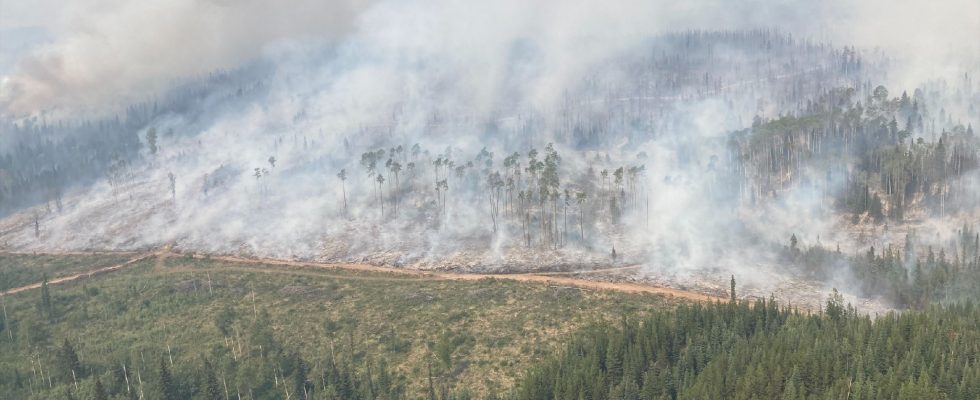At the end of July, carbon emissions generated by fires in Canada reached unprecedented levels: they are already more than double the previous annual record of 2014, according to data from the European observatory Copernicus published on Thursday 3 august.
“Currently, total emissions from wildfires in Canada stand at around 290 megatonnes (of carbon), while the previous record in 2014 was 138 megatonnes,” Copernicus said in a bulletin.
The figure for 2023 currently only reflects emissions since the beginning of the year and even for the most part since the beginning of May, when the fires began to ravage the country, while the fire season is not yet finished.
Canada is warming faster than the rest of the planet
“We have been monitoring fire emissions across Canada for the three months since the beginning of May and over this period they have continued to increase almost continuously to a level that is already considerably higher than previous emissions recorded in our database for an entire year in this country,” said Copernicus Atmosphere Monitoring Service scientist Mark Parrington. The data goes back to the beginning of 2003.
“Fire-related emissions in boreal zones usually peak in late July or early August, so the total should continue to rise for a few more weeks,” he warns.
Canada, which due to its geographical location is warming faster than the rest of the planet, has been confronted in recent years with extreme weather events whose intensity and frequency have been increased by climate change. As of July 30, the country was ravaged by more than 990 fires, including 613 deemed out of control. To date, more than 12 million hectares have already burned this year, a total well above anything the country has ever known.
